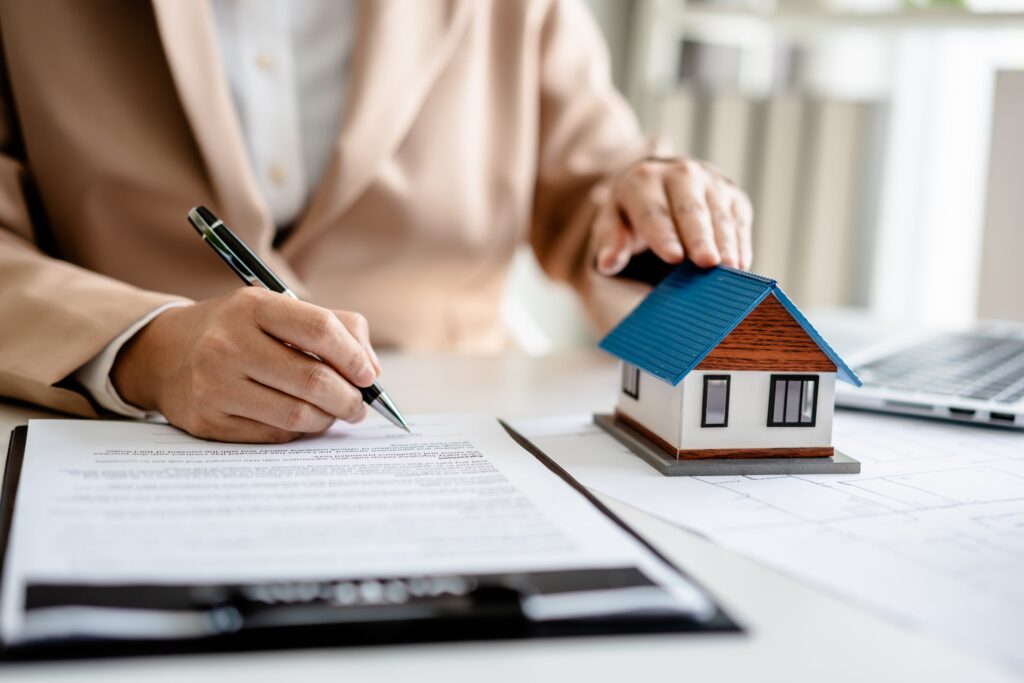Home selling guide: What are the steps to sell a house?
The home selling process involves many different steps, including before, during and even after completion.
Fortunately, at GD Property Solicitors, we’re exceptionally experienced in the house selling process, so we know what to do at every stage.
Keep reading to discover our full step-by-step guide to selling a house.
Steps to sell a house
Selling your home takes a little more effort than simply taking some pictures, putting the property on the market and agreeing on a price with a buyer.
It’s an in-depth process that takes many weeks, sometimes months. Here are the steps to sell a house in the UK..

Is a property sale right for you?
The first step is deciding if selling the property is right for you.
There are many reasons why an individual, a couple, or a family would decide to sell their home and move elsewhere. These could include needing to downsize, a young family needing more space, finances causing the move, or simply wanting to move home to something bigger and better.
However, it’s a huge decision, so you should weigh up the pros and cons of selling your home. Do you have the money to put down a deposit on a new home? What are your current finances like? Check your mortgage contracts and figure out if it’s viable for you to move right now.
Also, how does the property look? Does it require some TLC to attract potential buyers, or is it market-ready?
Arrange a property valuation
Before putting your house on the market, you should know how much it’s worth. This can dictate your next move and the type of property you decide to move into.
Some online resources can help you instantly get a good idea of the value of your home, based on its size and condition and the price neighbouring properties have sold for in recent years.
However, it’s best to find a local estate agent who can visit your property and evaluate it. If you’re not happy with their valuation, you can also invite other estate agents.

Find a property solicitor and estate agent
Next on your to-do list is to find a conveyancing solicitor and estate agent to help with your sale.
The estate agent can be a local high street agent or from an online company – whatever suits you best.
You may need an estate agent’s expertise to prepare your home and list it on the market, and a solicitor is vital in ensuring the sale process is completed efficiently.
They will negotiate the draft contract and other issues with the buyer’s solicitor and arrange a property search if needed.
Prepare your home
A clean, tidy, clutter-free home will give you a better chance of selling faster. Applying fresh coats of a light coloured paint on the walls, fixing any small details around the home that you haven’t gotten around to yet and removing excess clutter will help potential buyers see themselves in your house.
Kerb appeal is always important to buyers, so you’ll need a tidy front garden, clean windows and doors and well-maintained gutters and roofs. A looked-after exterior will make your online listing stand out, bringing in more viewings.
Another preparation you can make is showcasing any rooms that may have multiple uses – for example, adding a desk to a spare bedroom will show potential buyers that there are options for bedrooms or home offices.
Potential buyers need to visualise themselves in your home; a clean, blank slate is the best way to help them do this.
Read our blog on what not to fix when selling your home.

Set the asking price
After you have chosen an estate agent to represent you in your sale, you will need to agree on an asking price. Your estate agent will be able to assist with this, but there are steps you can take yourself to understand your house’s worth.
Research house sales in your area. What did the homes around yours sell for recently? Is your home a similar size and style? Does your home have features that are more up-to-date than those homes, such as a new kitchen or bathroom?
It would also be beneficial to see how long those houses were on the market for. If they sat on the market for a while, you could list your home for a lower price if you want to sell quickly. Or, if they sold quickly, you may be able to adjust your listing to a higher asking price.
Also, have in mind what offers you would be willing to accept below the asking price.
Check your Energy Performance Certificate (EPC)
It is a legal requirement in the UK to have an up-to-date Energy Performance Certificate when selling homes.
The EPC provides vital information about the property’s estimated energy bills, offers recommendations on energy efficient improvements and gives an indication of the cost to install any measures to improve the home’s EPC rating.
Having a good EPC rating can make your home more attractive to potential buyers because it shows them there isn’t much work required to bring the house up to a good energy efficiency standard.
Read our blog on selling a property with an Energy Performance Certificate..

Handle property viewings
Now’s the time to start handling house viewings for interested buyers. If you choose the right estate agent, they can take over these for you, or you can decide to handle them yourself. After all, you know more about your home than anybody else!
Be welcoming and friendly to all buyers interested in purchasing your home. Ask them if they have any questions, and be as open as possible. A buyer will be suspicious if you’re on edge or unwilling to divulge information.
Accept an offer
After a few viewings, you may be lucky enough to receive an offer for your home. If it’s the right amount you’ve been hoping for, you can formally accept the buyer’s offer and inform your solicitor and estate agent.
Exchange contracts
At this stage, you’re legally committed to selling the property. The buyer is also legally committed to buying it.
If you pull out now without a valid reason, while your online conveyancing solicitor is arranging the exchange of contracts with the buyer’s solicitor, their deposit will be returned.
Prepare to move
Once you’ve reached an agreement with your buyer, it is time to prepare for your move. Now is the best time to take a meter reading and inform your energy supplier and internet company about your moving date. You will also need to inform your house insurance company and redirect your post to your new property.
Some sellers also take this time to have a clear-out, getting rid of furniture and decorations they don’t want to take with them to their new house.
Consider which white goods you’re taking with you, too. If you’re selling things like internal refrigerators or washing machines with the property, you should consider what you’ll need to buy for your new property.
Now is also the time to start organising movers or van rentals for the big day.
Completion date and moving day
On completion day, the money from the sale of your home will be transferred from the buyer’s solicitor to yours. When this happens, the house is officially sold, and you’ll need to remove your possessions from the property.
However, by this point, many sellers have already vacated the property. Once the money has been transferred, the buyers can get the keys to the home, so you’ll need to have left already.

Speak to expert property solicitors
Are you ready to move ahead with the sale of your home? If so, we can help you at GD Property Solicitors.
We’re expert conveyancing solicitors for selling a house in the UK, and have helped thousands of people just like you.
We understand local and nationwide property laws, allowing us to efficiently handle the conveyancing process for all our clients.
Request a FREE quote to discover our conveyancing prices and get in touch to speak to our highly qualified property solicitors.